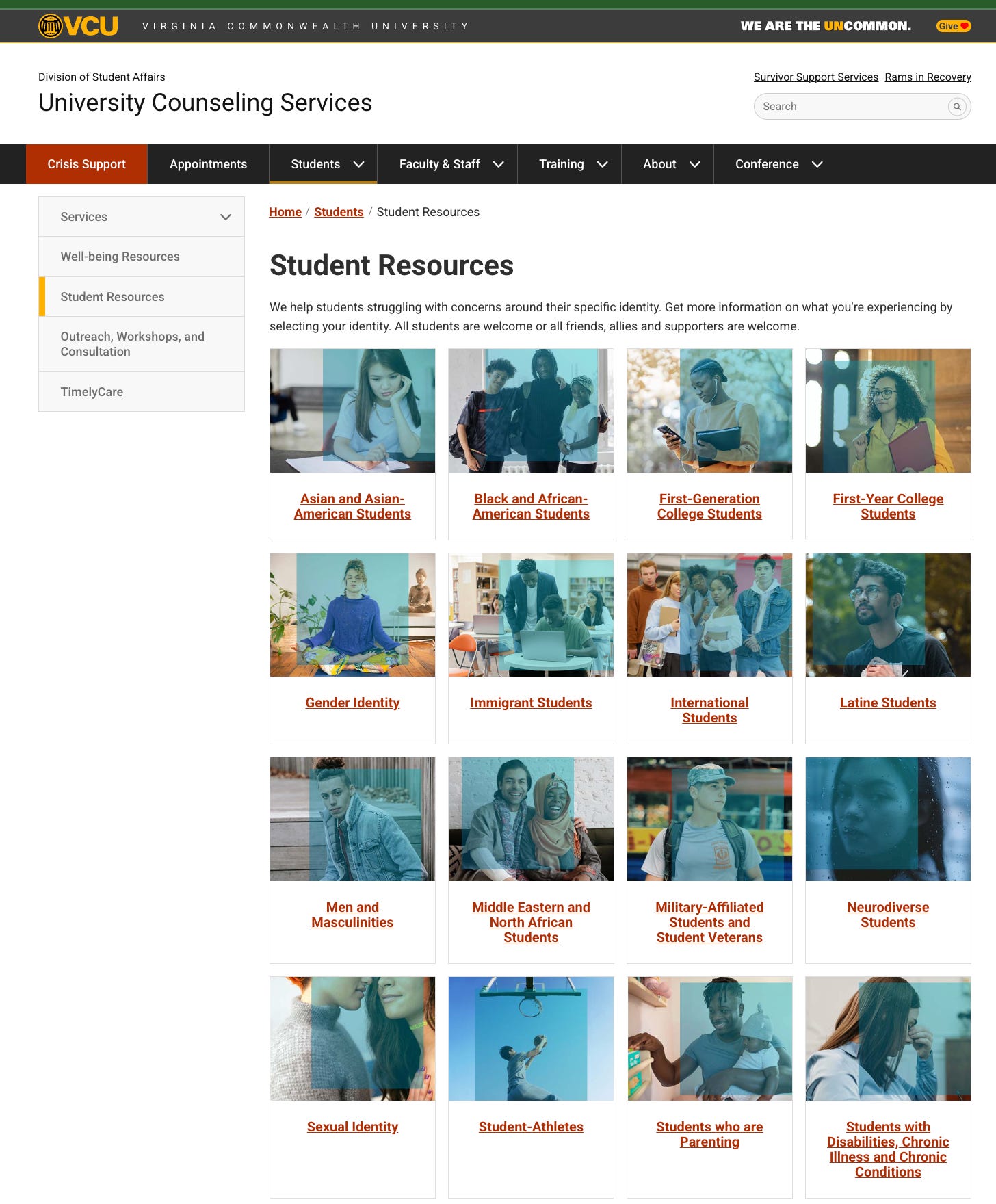For men in crisis, VCU offers Feminism 101
Virginia Commonwealth counseling offers its men lessons on gender ideology and the patriarchy
Like most schools, Virginia Commonwealth University promotes abundant mental health and wellness resources for its students.
VCU’s support services for men, however, resemble a women’s studies course more than behavioral health care. It’s a case study in how men’s health is routinely dismissed—and a glimpse into why men’s college enrollment has trailed women’s by double digits for four decades.
VCU counseling and identities
On its counseling services website is a Student Resources page listing 16 “identities” that link to resources for various groups. These include students who are veterans, Asian, first-generation, neurodivergent, parents, etc.
Each resource page lists services for struggling students who identify with that label. For example, under the Black and African American tab, VCU students will find counseling services specifically tailored to Black clients. Disabled students will find links to the school’s accessibility office and the campus Association of Students with Disabi…


